Posts by Modern Cosmetics and Dentistry
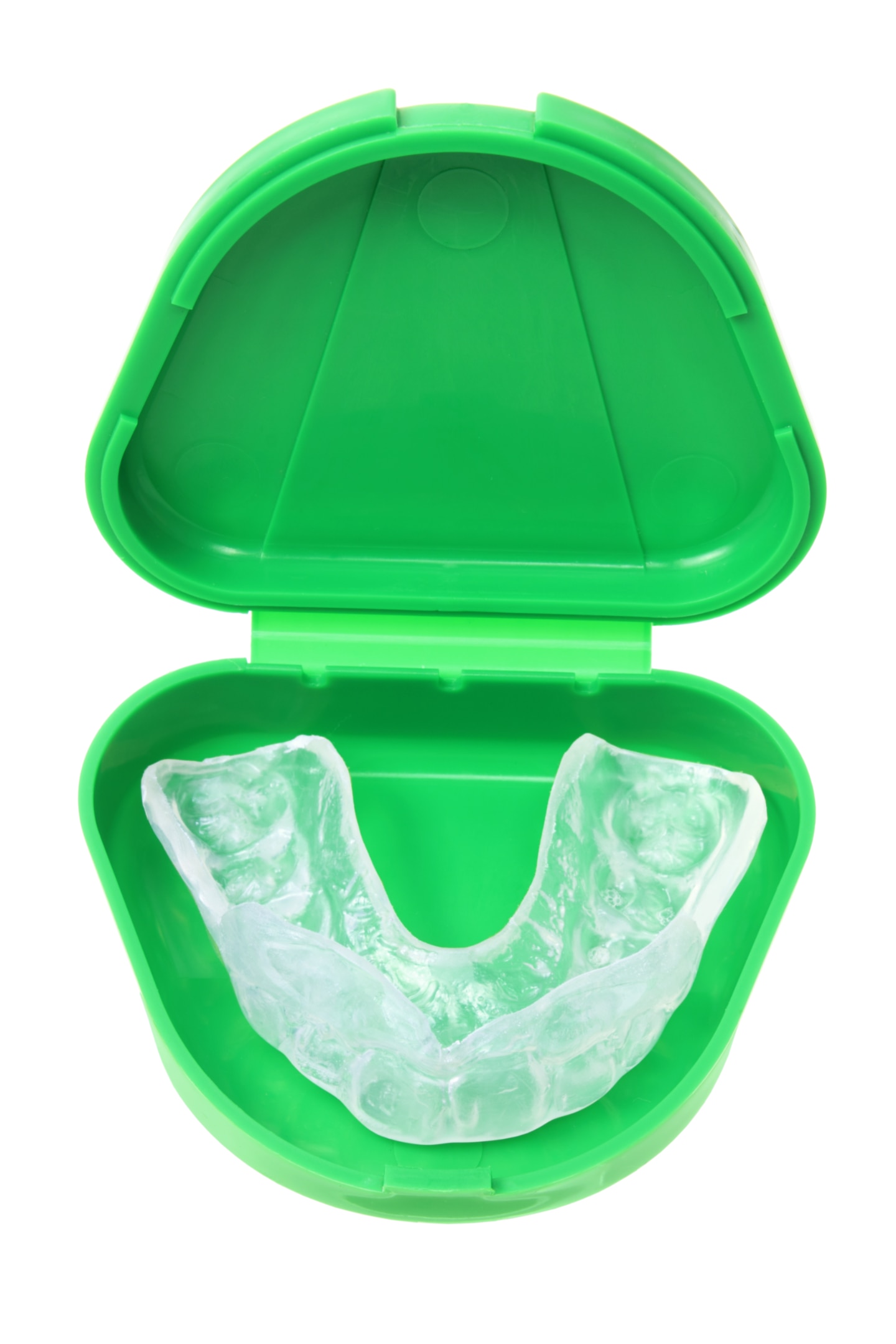
Links Between Oral Health and Sleep Quality: Bruxism and Night Guards
Published on 09/03/2025
There exists a strong link between oral health and sleep quality, particularly in people who grind their teeth—a condition known as bruxism. For patients in Joplin, Missouri, understanding this connection and the value of night guards is essential for protecting long-term dental health and restful sleep.
Understanding Oral Health and Sleep
Poor oral health is connected to a variety of health issues, and research shows that individuals with bruxism may experience a lower quality of life and sleep. Bruxism, whether during the day (awake bruxism) or at night (sleep bruxism), has been shown to increase incidents of tooth decay, jaw pain, and disrupted sleep patterns.
What Is Bruxism?
Bruxism is a repetitive jaw-muscle activity characterized by clenching or grinding of the teeth, especially during sleep. It can damage tooth enamel, cause jaw pain, and even result in headaches or earaches. Estimates show that bruxism is found to occur in 8% to 31% of the population and can often go undiagnosed without a dental exam.
The Impact of Teeth Grinding
If left unaddressed, teeth grinding can lead to serious dental problems such as tooth sensitivity, cracked teeth, or receding gums. Dentists identify signs through patterns of enamel wear or oral discomfort. This hidden habit not only harms the teeth but also contributes to poorer sleep quality for many patients.
Signs You May Be Grinding Your Teeth
- Increased tooth sensitivity
- Jaw pain or stiffness, sometimes in association with temporomandibular disorders (TMJ Syndrome)
- Frequent headaches, often in the morning
- Cracked or chipped teeth
- Receding gums or worn enamel
Night Guards: A Proven Solution
Night guards are custom-made dental devices that act as a barrier between the upper and lower teeth, protecting them from the harmful effects of grinding during sleep. The use of night guards is recommended by dental professionals because they:
- Absorb and distribute the pressure caused by nighttime grinding
- Reduce pain in the jaw muscles and joints
- Shield teeth from wearing down or chipping
- Help prevent further dental complications
- Improve sleep quality by minimizing muscle strain and discomfort
Recognizing the Benefits for Joplin Residents
If left untreated, bruxism can erode dental health and diminish sleep quality. For residents of Joplin, night guards are an effective, non-invasive way to tackle these challenges. Dentists can craft a custom night guard that addresses individual needs for comfort and fit, maximizing protection and long-term benefits.
In summary, the relationship between teeth grinding and disrupted sleep is well-documented, and night guards offer a practical solution. Improving both oral health and sleep quality begins with identifying the signs of bruxism and considering protective options like night guards with the help of local dental professionals.
If you're experiencing jaw pain or stiffness along with frequent morning headaches, schedule an appointment with your hometown dentist at Modern Dentistry and Cosmetics in Joplin as soon as possible at (417) 623-8232.
Read More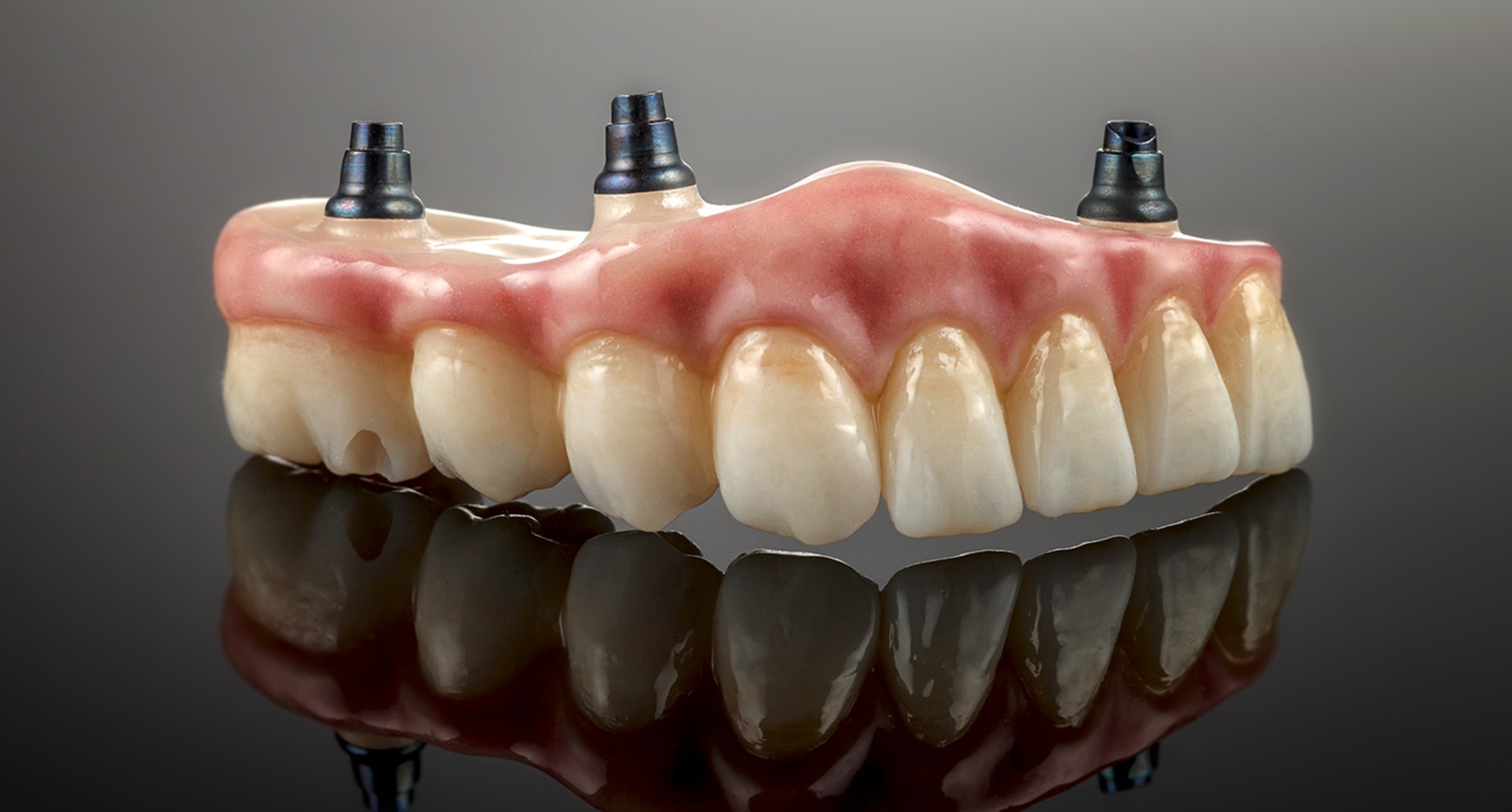
Cosmetic Dentistry Trends: How Modern Implant-Supported Dentures Restore Confidence for Patients
Published on 08/13/2025
Advancements in dental science have opened new possibilities for patients seeking both function and confidence in their smiles. For many in Joplin, Missouri, the combination of artistry and innovation found in cosmetic dentistry is transforming not only appearances but also daily confidence.
One of the most practical breakthroughs in modern implant-supported dentures is that they blend cutting-edge technology with natural-looking results. These solutions go beyond traditional methods, offering comfort, stability, and a renewed sense of self for people looking to reclaim the joy of speaking, eating, and smiling without hesitation.
New Era of Cosmetic Dentistry
Cosmetic dentistry is rapidly transforming smiles and boosting self-esteem for people in Joplin, Missouri, and beyond. Modern Dentistry and Cosmetics is at the forefront of these advances, offering patients access to state-of-the-art solutions that combine art and science. With today's techniques, dental professionals weigh not just a patient's confidence and psychological well-being, but also their long-term oral health and functional harmony.
Implant-Supported Dentures: Revolutionizing Smile Restoration
Among the most groundbreaking advancements in cosmetic dentistry are implant-supported dentures. Unlike traditional dentures, which may slip or cause discomfort, an implanted denture is anchored securely to the jawbone to hold the denture in place. This modern solution:
- Restores natural chewing ability and speech
- Provides a stable, comfortable fit
- Prevents bone loss and facial sagging
- Looks and feels like natural, permanent teeth
- Allows for easy maintenance and cleaning
Technology's Role in Smile Transformation
Cutting-edge technology has elevated the standards of cosmetic dentistry. Digital imaging and artificial intelligence help dental practitioners identify issues invisible to the naked eye, simulate results, and select the most effective treatment path.
For implant-supported dentures, 3D scans ensure exact placement, reducing risks and improving patient satisfaction. In addition, techniques such as laser contouring and same-day crowns not only minimize discomfort and reduce downtime for busy patients but also enhance the overall patient experience, ensuring a high level of satisfaction.
Restoring Confidence: Patient-Centered Care
At Modern Dentistry and Cosmetics, the mission goes beyond creating beautiful smiles; it's about restoring a patient's confidence and well-being. The integration of dental implants and advanced prosthetics enhances the appearance while also improving the quality of life for patients. Studies show that individuals who undergo these cosmetic dentistry procedures report:
- Improved self-esteem and social engagement
- Greater comfort when eating and speaking
- Higher satisfaction with their dental care
- Long-lasting aesthetic and functional results
- Cosmetic Dentistry in Joplin, Missouri: Your Path to a Brighter Smile
As technology and practice models evolve, so do the possibilities for cosmetic dentistry. Modern implant-supported dentures are just one example of how contemporary techniques can provide life-changing benefits for patients.
If you're ready to schedule a denture consultation with Modern Dentistry and Cosmetics in Joplin for a personalized approach and a future filled with radiant smiles, call (417) 623-8232 to take the first step toward a brighter smile today.
Read More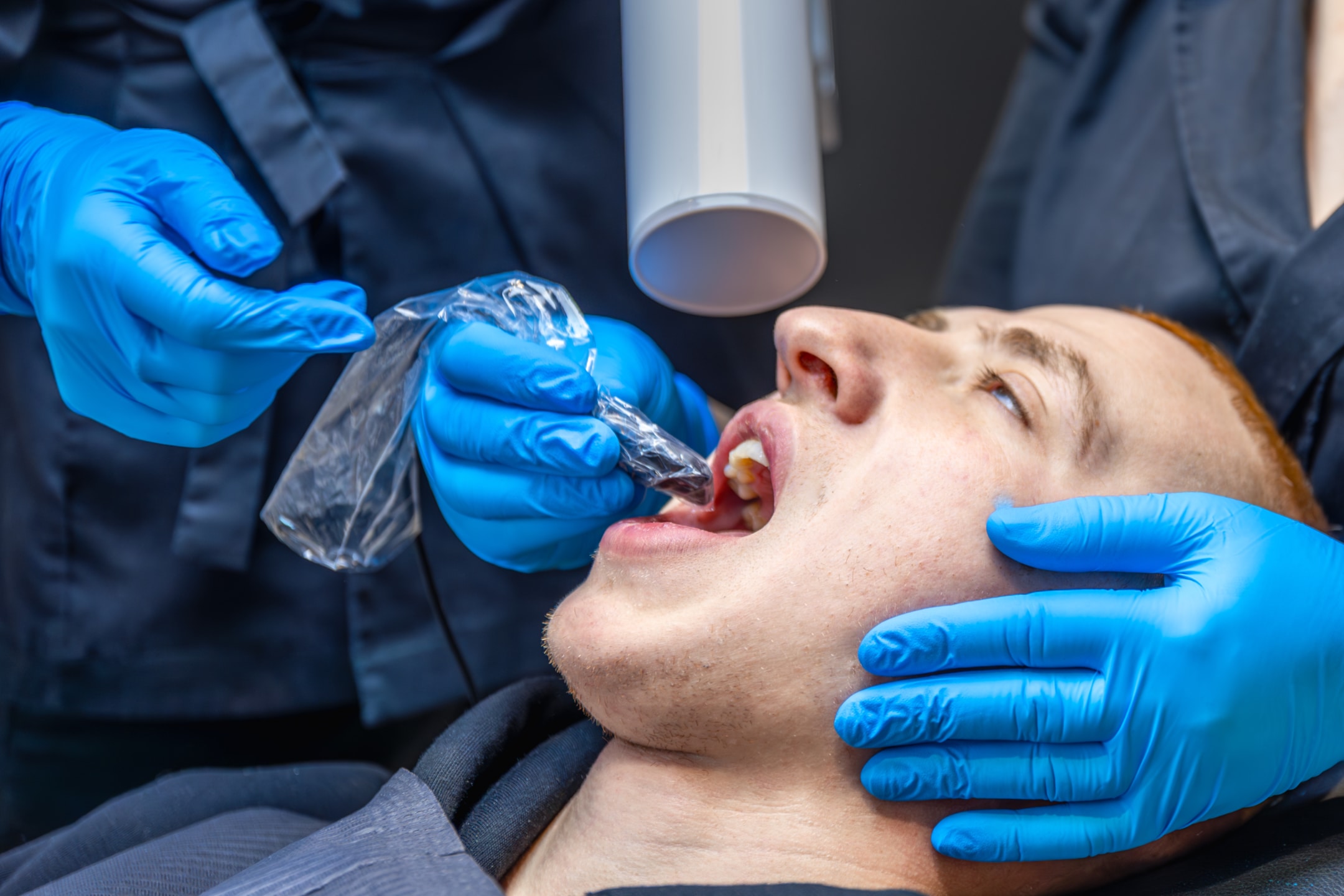
Dental Emergencies: What to do in Rural Communities Like Joplin, Missouri
Published on 07/23/2025
Dental emergencies creep up when you least expect them. For those in rural areas, such as Joplin, Missouri, understanding how to handle these situations—even with limited access to immediate dental care—can make a crucial difference in outcomes. Below, you'll find practical guidance on the steps to take when faced with dental crises, along with tips specifically tailored for rural communities.
Understanding Dental Urgencies
Dental emergencies are situations involving your teeth or gums that require prompt attention to relieve severe pain, stop bleeding, or save a tooth. These conditions include severe toothache, knocked-out or broken teeth, infections or abscesses, and injuries to the mouth's soft tissues. Knowing what constitutes a true dental emergency will help you act swiftly and appropriately.
Common Dental Emergencies and First Steps
In rural areas, distances to care are longer, so immediate action at home is especially vital. Here's how to manage some of the most frequent dental emergencies:
- Knocked-Out Tooth: Handle the tooth from the crown (not root), gently rinse off dirt, attempt to reinsert if possible, or store it in milk or saliva. See a dentist as quickly as possible—ideally within an hour—for the highest chance of saving the tooth.
- Cracked or Broken Tooth: Rinse the mouth out with warm water, apply a cold compress to help reduce swelling, and save any fragments. Contact your dentist promptly.
- Bitten Lip or Tongue: Clean the area, apply pressure with a clean cloth or gauze to stop the bleeding, and use a cold compress to reduce swelling. Seek care if bleeding doesn't stop.
- Object Stuck Between Teeth: Gently use dental floss, not sharp objects. If unsuccessful, see your dentist.
- Severe Toothache: Use an over-the-counter pain reliever and contact your dentist. Do not apply aspirin directly to the gums.
Challenges Facing Rural Communities
Accessing timely care for dental emergencies is often more challenging in rural locations. Factors such as a shortage of local dental providers, transportation barriers, and longer wait times for appointments can delay treatment and increase the risk of complications. Joplin and surrounding communities sometimes experience shortages of dental hygienists, resulting in additional strain on available practices.
Preparing for Dental Traumas
Preparation is essential. Keep a basic dental emergency kit on hand with the following supplies:
- Cotton swabs and dental floss
- Sterile gauze squares and gloves
- Orthodontic wax or paraffin
- Cold compress or ice pack
- Pain relievers (acetaminophen, not aspirin for direct application)
- Small clean container with a lid (for transporting a knocked-out tooth)
Time is of the essence—transport the person to a dentist or emergency room as soon as possible if a serious injury occurs.
Guidance on Seeking Immediate Professional Help
While you may be able to manage initial care, some dental emergencies require immediate professional treatment. You should never ignore Persistent bleeding, intense pain, suspected jaw fractures, or signs of infection (such as swelling or fever). When local dentists in Joplin are unavailable, seek care at the nearest emergency department, but keep in mind that dental professionals are best equipped to manage ongoing oral health needs.
Dental emergencies can be stressful, especially in rural settings. By understanding how to respond and being prepared, residents of Joplin and surrounding communities can minimize discomfort and lower the risk of long-term impacts. Keep these recommendations in mind, and connect with Modern Dentistry and Cosmetics for all your dental needs by calling (417) 623-8232 today to schedule your appointment.
Read More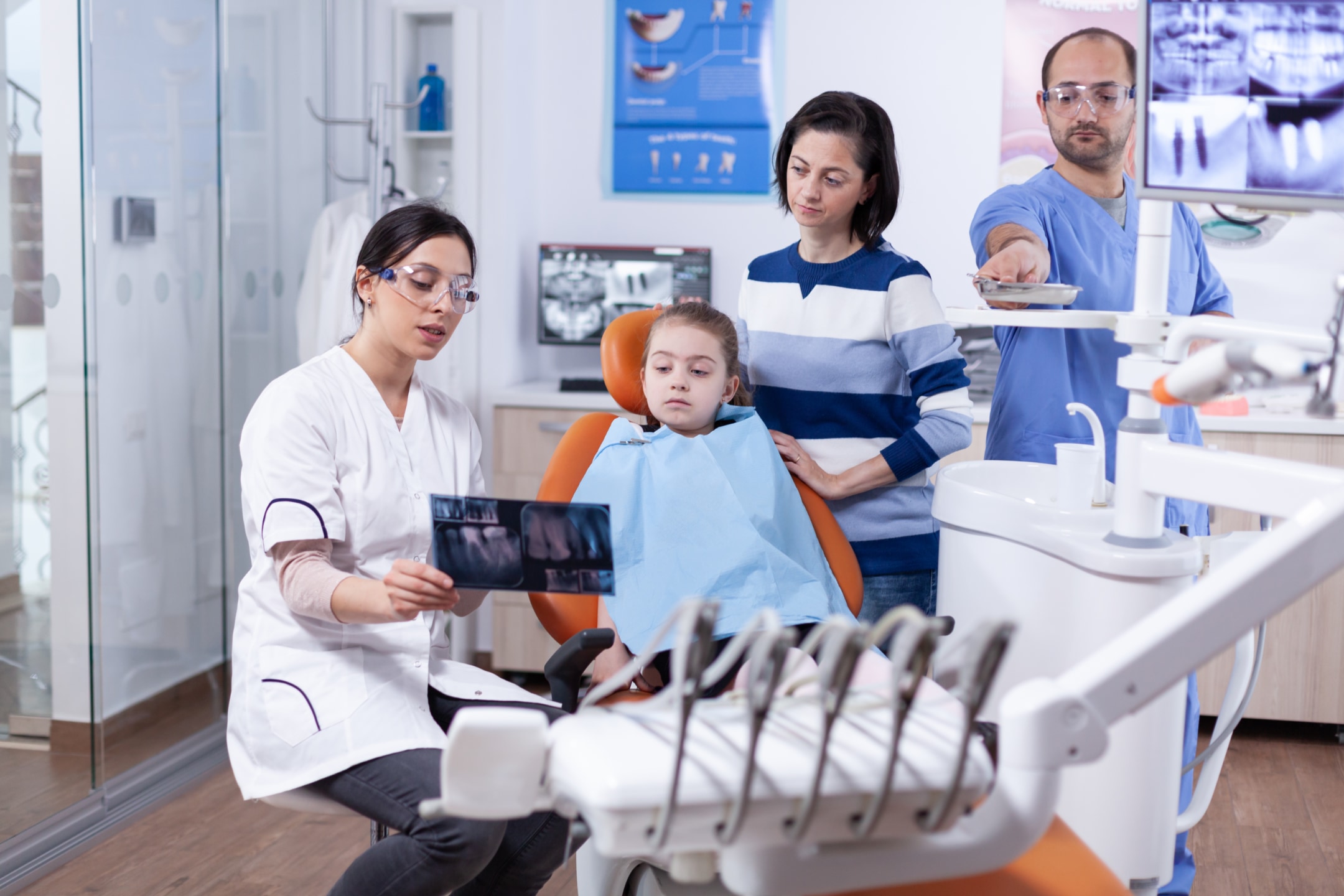
Family Dentistry: Essential Oral Health Tips for Every Age, From Children to Seniors
Published on 06/17/2025
Maintaining a good, healthy, beautiful smile is a lifelong journey, and Modern Dentistry and Cosmetics in Joplin, Missouri, is committed to supporting families at every stage. Family dentistry ensures that everyone—from toddlers to grandparents—receives age-appropriate care and guidance tailored to their needs. Discover these essential oral health tips, tailored for each generation, that can lead to healthier habits now and into the future.
1. Building Healthy Habits Early: Children’s Dental Care
Oral health starts as soon as the first tooth appears. Parents have a crucial role in establishing positive oral routines that set the foundation for lifelong dental wellness.
The American Academy of Pediatric Dentistry recommends:
- Brushing children’s teeth with fluoride toothpaste twice daily, using a smear or pea-sized amount, depending on age.
- Supervising brushing and flossing until children develop the dexterity to do it effectively, typically around age 8.
- Children should have their first dental visit by their first birthday, and their parents should maintain annual dental check-ups thereafter.
These annual check-ups help prevent cavities, ensure proper tooth development, and create positive dental experiences from the start.
2. Adolescents and Teens: Navigating New Challenges
As children grow, their dental needs evolve. Adolescents face unique risks, including increased consumption of sugary snacks, the use of orthodontic appliances, and the temptation to neglect their oral hygiene.
Family dentistry emphasizes:
- Brushing twice a day for two minutes and flossing daily.
- Refrain from consuming sugary drinks and snacks that can lead to cavities.
- Wearing mouthguards during sports helps prevent dental injuries.
Regular dental visits during these years help monitor changes, reinforce good habits, and address concerns related to orthodontic issues or the development of wisdom teeth.
3. Adult Oral Health: Prevention and Maintenance
For adults, prevention remains the cornerstone of oral health. Family dentistry provides continuity of care, helping adults manage:
- Gum health and prevention of periodontal disease.
- Early detection of oral cancer and other conditions.
- Restorative needs such as fillings, crowns, or cosmetic improvements.
Adults should continue brushing and flossing daily, reduce their intake of acidic and sugary foods, and schedule dental cleanings and exams every six months.
4. Senior Smiles: Special Considerations for Older Adults
As we age, oral health needs shift. Seniors face challenges such as dry mouth, tooth loss, or managing dental care alongside chronic conditions.
Family dentistry supports seniors by:
- Addressing dry mouth, which is often caused by medications.
- Providing solutions for tooth replacement, such as dentures or implants.
- Monitoring for oral cancers and gum disease.
Maintaining regular dental visits is vital for overall health and quality of life in our golden years.
5. Universal Tips for a Healthy Family Smile
No matter your age, these universal practices are key for everyone in the family:
- Brush teeth twice daily with fluoride toothpaste.
- Floss teeth twice daily to remove plaque between teeth.
- Maintain a balanced diet rich in fruits, vegetables, and dairy products.
- Limit sugary snacks and drinks.
- Schedule regular dental check-ups and cleanings.
Why Choose Family Dentistry?
Family dentistry provides comprehensive, ongoing care tailored to the individual needs of each family member. By building relationships with your dental team, you ensure that everyone in your household receives expert guidance and preventive care through every stage of life.
For families in Joplin, Modern Dentistry and Cosmetics is your partner in creating healthy, confident smiles for years to come. Schedule your next appointment and experience the benefits of family dentistry for every generation.
Read More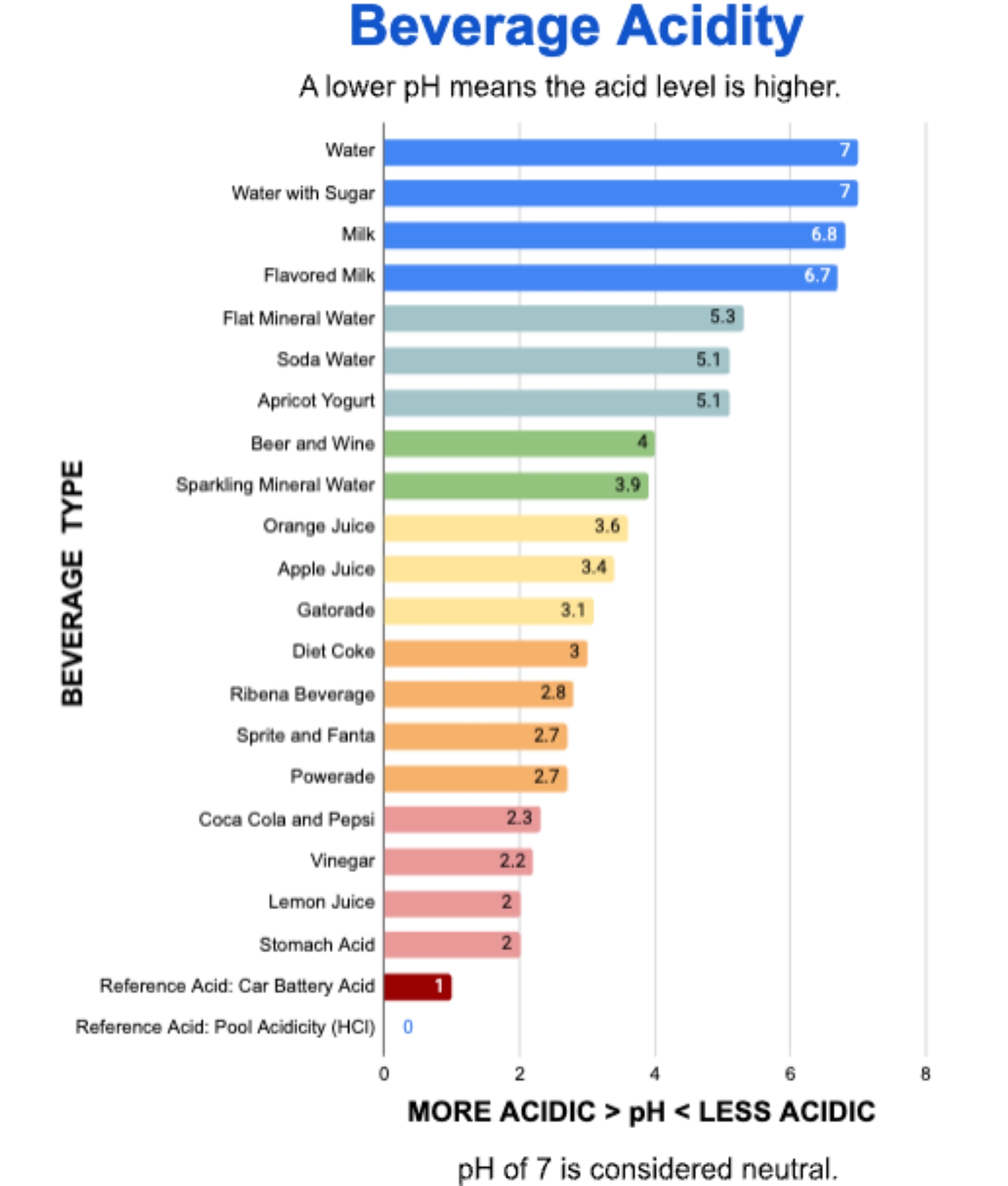
Separating Dental Fact from Fiction: What Joplin Patients Need to Know
Published on 05/21/2025
Modern Dentistry and Cosmetics in Joplin, Missouri, helps patients make sound, informed decisions about their oral health. With so much information—and misinformation—circulating online and by word of mouth, separating dental fact from fiction is more important than ever. Let's explore some of the most common dental myths and the science-backed truths behind them.
Brushing Harder Isn't Better
One of the most persistent myths is that brushing your teeth with more force will clean them better. In reality, brushing too hard damages your enamel and irritates your gums, potentially leading to sensitivity and gum recession.
The American Dental Association recommends using a soft-bristled toothbrush and gentle, circular motions for at least two minutes twice daily. Remember, when it comes to brushing, technique matters more than force.
Sugar and Cavities: The Real Connection
Many people believe that sugar alone causes cavities. While sugar is a significant factor, the bacteria in your mouth use sugar as fuel.
The bacteria produce acids that will erode tooth enamel and cause decay. Moreover, natural sugars found in fruit and juices are just as attractive to these bacteria as processed sugars. The key to separating dental fact from fiction is understanding that reducing sugar helps, but thorough brushing and flossing are equally essential for cavity prevention.
Sugar-Free Sodas and Fruit Juices: Not Always Safer
It's easy to assume that sugar-free sodas or fruit juices are better for your teeth, but that's not always true. Sugar-free sodas often contain acidic ingredients that can erode enamel, making teeth susceptible to decay. Similarly, fruit juices, while natural, are also acidic and can contribute to enamel erosion.
Even more surprising is that many beverages in the chart shown above become highly acidic at a pH below 5.5, which can erode tooth enamel and start causing tooth decay. To neutralize the impacts of the acid eating away at the enamel on your teeth, rinse your mouth with milk or water after consuming these beverages, and avoid brushing your teeth.
Bleeding Gums Are Not Normal
A common misconception is that bleeding gums during brushing or flossing is normal. Bleeding is a sign of gum inflammation or early gum disease. Healthy gums should not bleed. If you notice bleeding, you must improve your oral hygiene routine and consult your dentist to address potential gum disease before it progresses.
The Truth About White Teeth
Many people equate white teeth with healthy teeth, but color alone does not indicate oral health. Teeth can be naturally darker or discolored due to staining or enamel thinning.
Regular dental checkups and cleanings are a good way to ensure your smile's health and aesthetics. Prioritize your oral health to help maintain a healthy, beautiful smile.
Key Takeaways: Separating Dental Facts from Fiction
- Brushing harder can harm your teeth and gums.
- Sugar feeds bacteria that cause cavities; all sugars, even natural ones, matter.
- Sugar-free sodas and fruit juices can still erode enamel.
- Bleeding gums signal a problem, not normalcy.
- White teeth aren't always healthy teeth.
Why Separating Dental Facts from Fiction Matters
Misinformation leads to poor oral health choices and unnecessary dental problems. Separating dental facts from fiction empowers you to make better decisions for your smile and overall well-being.
Trust your dental care team at Modern Dentistry and Cosmetics in Joplin to provide accurate, evidence-based guidance for your oral health journey. Schedule an appointment today if you have questions or want to learn more about separating dental fact from fiction.
Your healthiest smile starts with the facts!
Read More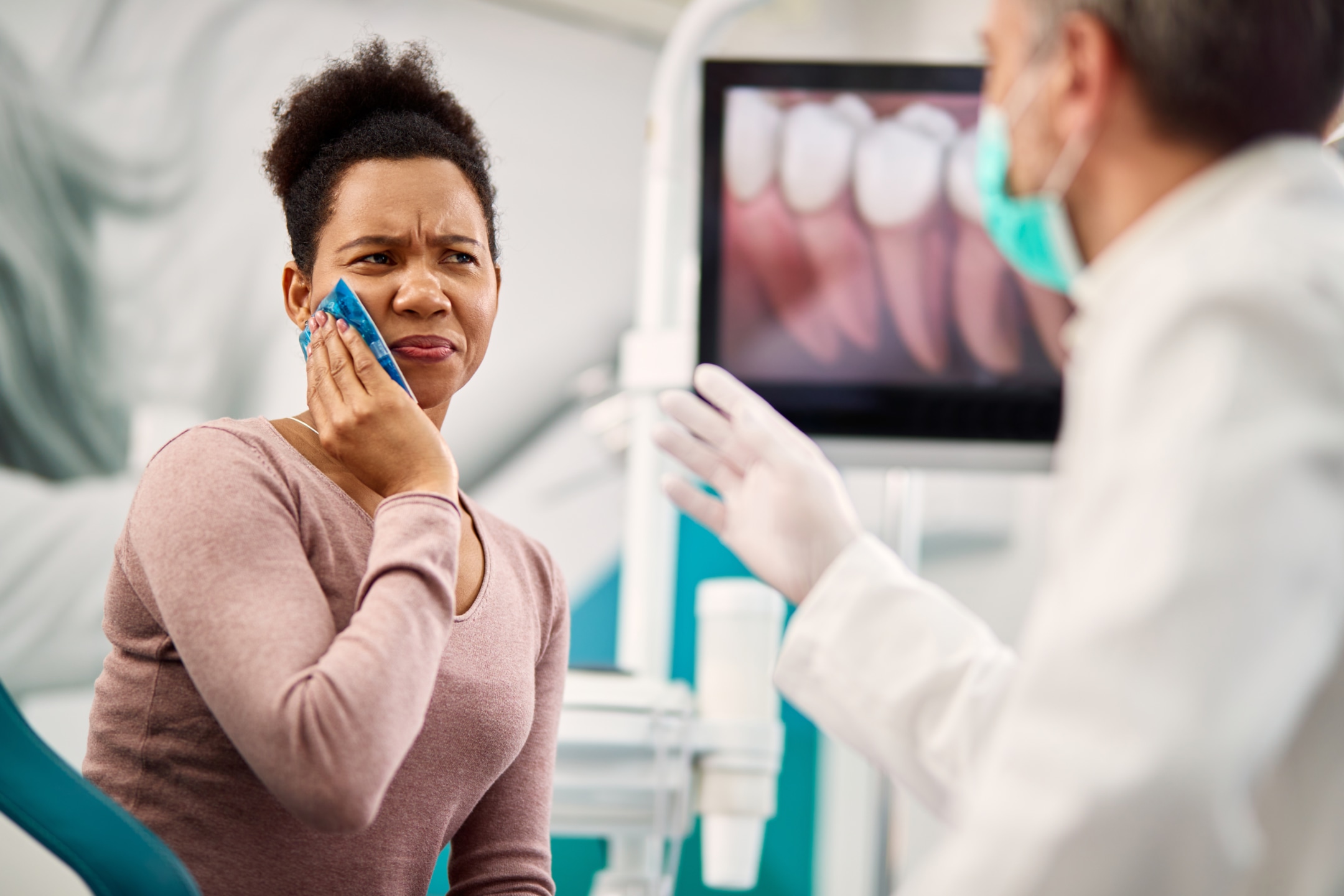
10 Signs You Need Emergency Dental Care
Published on 04/16/2025
Dental emergencies can strike unexpectedly, causing pain and discomfort that can risk your overall health if left untreated. Knowing when to seek emergency dental care is essential for protecting your oral health. Here are ten signs that indicate you may need immediate attention from a dental professional.
1. Persistent or Severe Tooth Pain
If you're experiencing intense, throbbing tooth pain that doesn't subside with over-the-counter medication, it could signal an infection, abscess, or nerve damage. These conditions require prompt emergency dental care to prevent the issue from worsening and potentially spreading to other areas of the body.
2. Swelling in the Face or Gums
Swelling in your gums, face, or jaw is often a sign of an underlying infection, such as an abscess. This condition can escalate quickly if untreated, leading to severe complications like cellulitis or systemic infection. Seek immediate care to address the swelling and its root cause.
3. A Knocked-Out Tooth
Losing a tooth due to trauma is a clear dental emergency. If handled quickly—ideally within 30 minutes—there's a chance the tooth can be reimplanted. Keep the tooth moist by placing it in milk or between your gum and cheek while heading to the dentist.
4. Uncontrolled Oral Bleeding
While minor bleeding after brushing may not be alarming, excessive or persistent bleeding could indicate serious issues like advanced gum disease or injury. That requires urgent attention to prevent further complications.
5. Broken or Cracked Teeth
A broken or cracked tooth caused by injury or biting down on something hard can expose nerves and lead to pain or infection if left untreated. Immediate care can help save the tooth and restore its functionality.
6. Loose or Dislodged Teeth
A loose tooth in adults is often the result of trauma or severe gum disease. If addressed promptly, a dentist may be able to stabilize the tooth and prevent permanent loss.
7. Signs of an Oral Infection
Symptoms like pus around the gums, bad breath, fever, and swollen lymph nodes may indicate an oral infection such as an abscess. When an infection is left untreated, it can spread to other parts of the body and become life-threatening.
8. Lost Filling or Crown
Losing a filling or crown exposes sensitive parts of your tooth, making it susceptible to pain and further damage. While not always life-threatening, this situation warrants quick action to avoid complications.
9. Jaw Pain or Difficulty Opening Your Mouth
Sharp jaw pain or difficulty opening your mouth could indicate temporomandibular joint (TMJ) issues, fractures, or infections that require immediate evaluation and treatment.
10. Sudden Sensitivity to Hot or Cold
If you experience sudden and severe sensitivity to temperature changes, it could mean a cracked filling, exposed root, or infection—all of which need prompt attention from an emergency dentist.
When to Seek Emergency Dental Care
Here's a quick checklist of situations that require immediate action:
- Severe toothache with swelling or fever
- Facial swelling due to infection
- Knocked-out teeth
- Persistent oral bleeding
- Cracked or broken teeth
Don't delay seeking emergency dental care if you notice any of these signs. Emergency dental situations are inconvenient and can pose significant risks to your health if ignored.
Modern Dentistry and Cosmetics in Joplin, Missouri, is here to provide expert care when you need it most. Whether it's a knocked-out tooth or severe pain, timely intervention can make all the difference in preserving your oral health.
Read More